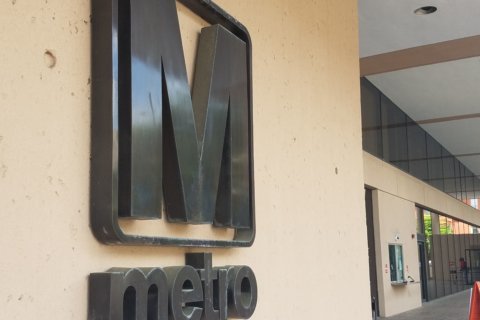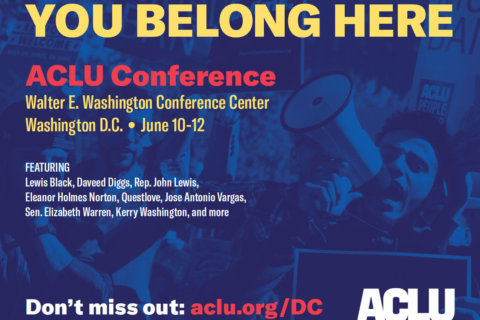
WASHINGTON — An anti-Muslim group’s efforts to advertise on Metro were revived by an appeals court Friday, but the appellate panel was harshly critical of the group’s arguments challenging Metro’s ban on issue-oriented ads.
A May 2015 request by the American Freedom Defense Initiative to put ads in Metro train stations and on buses is what triggered Metro’s advertising restrictions that have since been used to reject ads from the Catholic Church, PETA, ACLU and others.
Metro Assistant General Manager Lynn Bowersox said in a deposition in the case that the ad — which would have shown the Prophet Muhammad — had been linked to threats of violence and even a shooting elsewhere, and was “the straw that broke the camel’s back” after several years of increasing complaints about other ads in the Metro system.
Metro then changed its ad policies to ban issue-oriented ads shortly after the group asked to run them, and the ads were rejected. Before the ban, the group had won a court order requiring Metro run its ads in the system.
“[Metro] has succeeded in eliminating complaints about the advertisements it accepts, but it has swapped those controversies for numerous lawsuits over the advertisements it rejects,” the three-judge D.C. Circuit panel said.
The 2-1 decision tore apart nearly every argument made by the American Freedom Defense Initiative, but sent the case back to a lower court for further review due to a June U.S. Supreme Court decision about restrictions on political buttons and T-shirts in Minnesota polling places.
That decision, the three-judge panel said, means a lower court must reconsider whether Metro’s advertising guidelines and restrictions are reasonable.
The Supreme Court ruling came after arguments had been made in this case, but found that restrictions on “political” clothing in polling places were too vague. If the lines of what were permitted or not permitted were clearer, the Court said the law would have been acceptable.
Now, it will be up to a District Court judge to consider whether Metro’s guidelines are clear, objective and workable or whether they leave Metro with too much discretion.
The appeals court upheld most of the District Court’s original decision in favor of Metro, since Metro’s advertising restrictions are viewpoint-neutral. The panel also cited last month’s ruling by a separate three-judge panel in a challenge by the Archdiocese of Washington that found Metro can close off its advertising space to certain speech.
While it does go back to a lower court, the 2-1 ruling tears apart a number of key arguments made by AFDI.
The arguments are variously called “silly,” “irrelevant,” “confused, “so far short that no reasonable jury could uphold them,” and a claim that in part “makes no sense on its own terms.”
“AFDI has not even alleged, let alone provided evidence, that WMATA has applied its rules inconsistently,” the court said.
Metro apparently initially rejected the ads as political, not due to their religious nature, the court said, so the panel did not consider the constitutionality of Metro’s separate ban on ads that promote or oppose any religion, religious practice or belief.
“AFDI was extremely late in [legal filings in] portraying its advertisement as anti-religious speech,” the court said.
Metro’s current guidelines ban, among other things, ads meant to influence people on issues where there are varying opinions, ads that support or oppose any political party or candidate, ads that promote or oppose any religion, religious practice or belief, and ads that support or oppose an industry position or industry goal without direct commercial benefit to the advertiser.
The dissenting judge, Karen LeCraft Henderson, would have found the entire case moot since the anti-Muslim group did not resubmit the ads under Metro’s revised advertising guidelines that have been in place since later in 2015.
Judge Douglas Ginsburg wrote the majority opinion and was joined by Sri Srinivasan. They found the revised guidelines essentially continue the initial temporary moratorium on issue-oriented ads.







